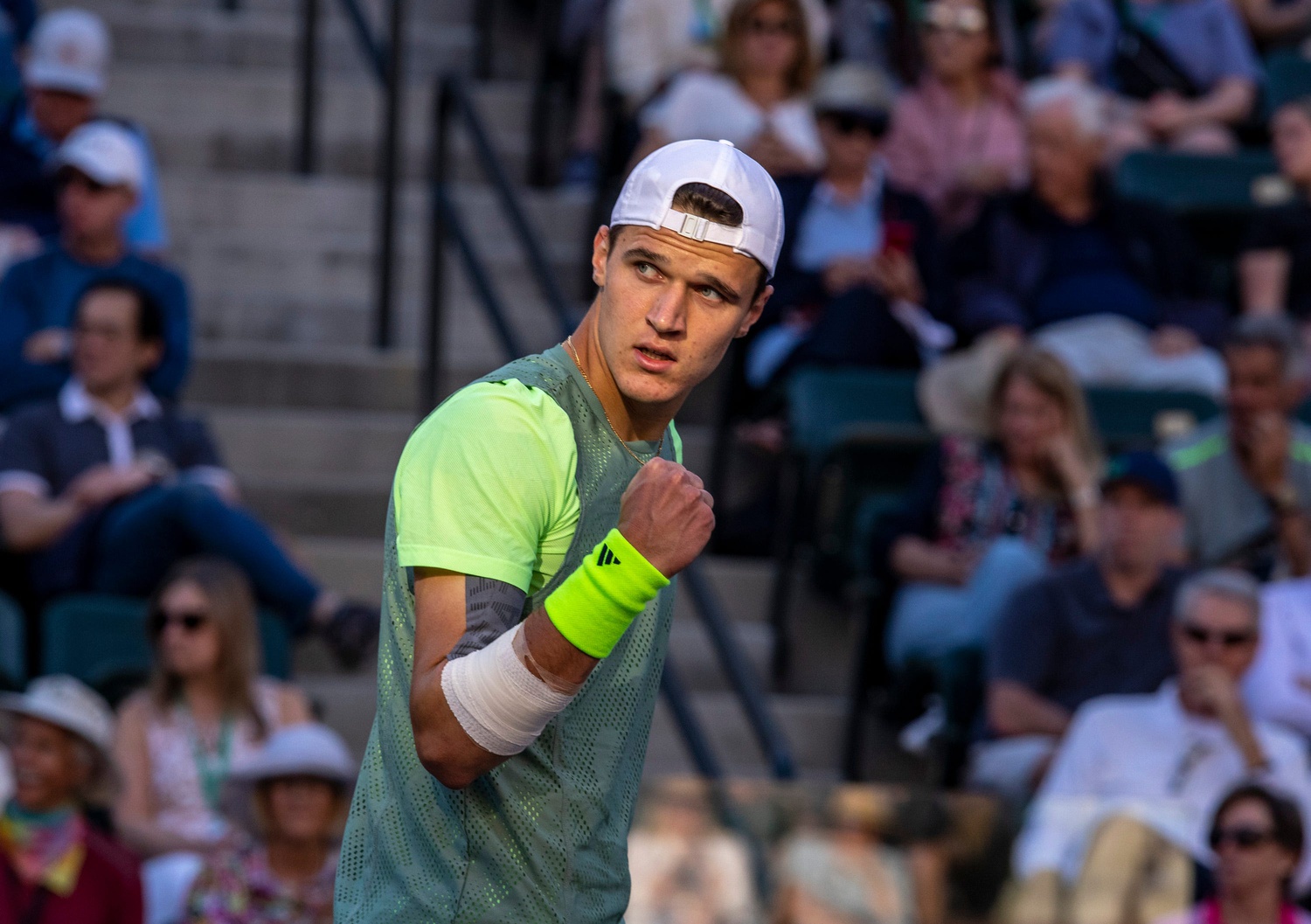


You may be aware of the Czech teenager who has lately transformed from mere “youth prospect” status to someone occupying a place in wider tennis consciousness. Having already claimed a Challenger title in his home country last May–getting the better of Dominik Koepfer in the final, as well as erstwhile Top 40 player Radu Albot–the Prostějov native qualified at the first attempt for a Grand Slam, then eliminated 59th-ranked Gregoire Barrere and fellow major debutant Titouan Droguet in the US Open proper (whilst still 17!).
Starting the year at World no. 167, Jakub Mensik maintained his 100% Grand Slam qualifying record to join 127 others at the Australian Open. Once there, he wasted no time in storming past Denis Shapovalov–once of the Top 10, yet now heading dangerously close to the sort of “could have been” territory occupied by Ernets Gulbis and Xavier Malisse–in straight sets, clubbing the ball fearlessly and moving incredibly well. Further notice was served of his confidence and quality in round two, where he had ninth seed Hubert Hurkacz somewhat troubled, two sets to one ahead, before losing in five. Some of the crowd who witnessed Mensik’s Melbourne magnificence may recall his name from two years earlier; he narrowly missed out on becoming junior champion, defeated 7-5 in the decider by American Bruno Kuzuhara.
While reaching the boys’ final of this Major is no indicator of future prosperity–for every Sebastian Korda and Lorenzo Musetti there is a Yshai Oliel and Jurabek Karimov–the fact Mensik ran a player 17 months his senior so close proves how far ahead of his age group he was. He does not exude the needy desperation of a wannabe; rather the steely determination of someone grasping their opportunity, who could conceivably become a serious threat to win an entire major in the next five years.
His coach Tomas Josefus witnessed frequent signs of future success in Mensik’s early years, noting the comparatively high percentage of points which end in less than five shots on hard courts and guiding his protégé towards an aggressive baseline rally strategy from the age of 14. As a result, he is already proving to be an assured player of the baseline game copyrighted by Novak Djokovic and Andy Murray; indeed, spending two separate weeks practizing with the former in the close season of 2022 is paying real dividends, and Mensik now uses the same analytics team as the Serb.
Murray, for his part, would become one of a tetrad defeated in Doha by the teenager, playing just his third tour event and ranked 116. Having dispatched 7th seed Alejandro Davidovich Fokina, Mensik outlasted the British veteran in a three-and-a-half-hour marathon, displaying sizeable focus and resilience – traits so deeply embedded in the elite band of players he is striving to join. Next stop: top seed (and world no.5) Andrey Rublev. One would have thought the Czech was the established star with 15 titles under his belt, such was the well-honed tactical brain he evinced at times, along with that inner belief – a solid carapace of steel in the champion’s composition.
There was now no stopping him; as his old foe Kuzuhara fell (to the world no. 649) in the second round of an ITF event 8,000 miles away in Florida, Mensik became conqueror of a resurgent Gael Monfils–with whom he shares a birthday, as well as a penchant for balletic elegance–to thereby become the first player born in 2005 to reach an ATP Tour final (Monfils had already claimed his first title and played in all four slams before Mensik entered the world!).
There is a head-spinning sense of anticipation of where Jakub Mensik may find himself once that tennis brain has been crystalized by years of experience–he now sits at the lofty position of no. 65 after wins over Borna Ćorić (Dubai) and Grigor Dimitrov (Madrid). Similar statements can be made of other teenage starlets such as Croatia’s Dino Prižmić, the reigning junior champion at Roland Garros who pushed Djokovic into a four-hour grind in Melbourne, and João Fonseca of Brazil, the 17-year-old who ought to be checked by a doctor, lest he be in danger of a nosebleed caused by his swift rankings elevation (300 positions in one week after a pair of wild card wins in Rio).
Main Photo Credit: Andy Abeyta/Desert Sun/USAToday Network